Three Questions
Here we ask a Hidden Shoal artist to choose three questions from a list of many and answer them as they wish – mini music interviews! A little bit of fun mixed with a little bit of insight.
Three Questions With Connected View
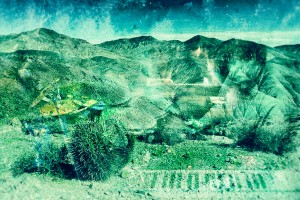 Connected View produce trojan horses. On first listen their output is littered with seemingly innocent, naive late-night instrumental jams, but on each successive spin you begin to notice the patterns and the purposefulness. By this time the woozy, rolling melodies have begun to mesmerise and before you know it you’ve fallen through the wormhole. Kinetic synths, sinuous basslines, live drums and found sounds intertwine to create an atmosphere akin to eavesdropping on Boards of Canada improvising with Fridge. Playful, dirty, brooding, radiant and rhythmic. Magic stuff!
Connected View produce trojan horses. On first listen their output is littered with seemingly innocent, naive late-night instrumental jams, but on each successive spin you begin to notice the patterns and the purposefulness. By this time the woozy, rolling melodies have begun to mesmerise and before you know it you’ve fallen through the wormhole. Kinetic synths, sinuous basslines, live drums and found sounds intertwine to create an atmosphere akin to eavesdropping on Boards of Canada improvising with Fridge. Playful, dirty, brooding, radiant and rhythmic. Magic stuff!
To learn a little more about what makes Connected View tick we asked the boys to pull three questions out of the bag…
What’s the best show you’ve ever been to?
The best show we’ve been to was Stereolab opening for Sonic Youth at the Electric Factory in Philadelphia in the year 2000. It was a crossroads in many respects. We were young and impressionable and it changed our view of music henceforth. At the time, we were huge Sonic Youth junkies, had been for years. We had heard of Stereolab, but never really investigated. Their set blew us away. It was a lot of stuff from the Microbe Hunters/ Cobra era. From there on we were Stereolab fanatics. It was just what we needed at that time. The next day I went to the record store and bought everything by Stereolab that they had in stock. Instead of noisy guitar-based music, we started seeking out more synthy and baroque stuff. We dug into the types of music that inspired the Stereolab sound and sought out decades worth of influences and then the influences of the influences. Kraut, psych, electronic, edm, tropicalia, different styles of jazz, synth pop, shoegaze, ect. We loved it all. Its been like peeling an onion. That show set us on the path to eventually making our own music.
Why make music?
We’ve been asking ourselves that question forever as well. Not sure its ever been adequately answered or ever will be. It doesn’t have to be. Whenever I ask myself this question I think of a few of my acquaintances who are not creative, or not involved in art in any way, and I just couldn’t imagine living that way, without a creative outlet. It seems like a pointless existence. Sometimes I wish I could go without music, it would save us a lot of time in editing. I’ve realized that whenever I feel down or I am having some difficulties in life, I turn to music more. It is the great escape. Other artists I’ve read in interviews have said things like “it’s the search for the unknown, a beautiful mystery that you get to unfold.” We can go with that too. There’s some kind of nervous energy within us that can only be released through music.
What’s one of your favourite albums that’s unlikely to be featured on anyone else’s list of favourite albums, and why do you love it?
One of our favorites that has seemed to be in the rotation for a long, long time & probably isn’t well known is Movietone’s ‘Blossom Filled Streets.’ We enjoyed all of Movietone’s output, but this one most. I was instantly drawn in by how it sounded as if it was recorded on the beach and the ocean imagery imbedded within. It enlightened me to the idea of concept albums beyond the proggy stuff I had previously been exposed to. It helped to form my concepts of what an album is supposed to be. A cohesive group of songs with a central theme tying them together. A theme, but also similar instruments and a style spread over a group of songs. When I hear ‘Blossom Filled Streets’ it connects me to moments and places over many years and now has that nostalgic importance that some albums obtain. To describe the sound to someone who hasn’t heard it would be difficult. The album is kind of a post-rock-ish array of horns, rhythm section, electric guitar, keyboards, bass, and sea sounds with great singing and lyrics.
Three Questions with Erik Nilsson
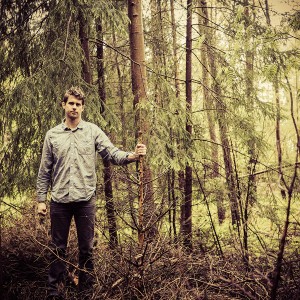 Erik Nilsson creates music that, in someways, defies logic. It is intrinsically linked to the manipulation and re-ordering of the “natural”, yet through this process somehow creates a new “nature”. Releases such as Hearing Things, Recollage and his forthcoming The Imperfect Tense are testaments to Nilsson’s innate sense of melody and progressive compositional strategies. Drawing on folk, classical and electronica, Nilsson blends acoustic instruments with field recordings and computer-generated sounds, crafting music akin to early Four Tet, Tortoise at their most minimal, and fellow Scandinavian soundscapers The Gentleman Losers. Yet all his work sounds like Erik Nilsson.
Erik Nilsson creates music that, in someways, defies logic. It is intrinsically linked to the manipulation and re-ordering of the “natural”, yet through this process somehow creates a new “nature”. Releases such as Hearing Things, Recollage and his forthcoming The Imperfect Tense are testaments to Nilsson’s innate sense of melody and progressive compositional strategies. Drawing on folk, classical and electronica, Nilsson blends acoustic instruments with field recordings and computer-generated sounds, crafting music akin to early Four Tet, Tortoise at their most minimal, and fellow Scandinavian soundscapers The Gentleman Losers. Yet all his work sounds like Erik Nilsson.
To get a glimpse inside the master’s mind we asked Erik to pull three questions out of the bag…
What kind of activity is your music made for?
I imagine that the music I make likes to put its listener in a state of “inwardness”. Perhaps it is music for the activity of paying close attention, either to the music itself or to some other solitary activity: walking, sitting, reading, breathing, running. I particularly admire a piece of music that sometimes just lends a certain emotional quality to my surroundings or to whatever I am up to , the next day has me counting beats, and the day after that seems to be all about texture. That is the kind of music I aspire to make.
Why make music?
Because it presents an opportunity to apply oneself – mind, body, and soul – to the construction of something like a rudimentary, abstract, self-contained world. Such a world makes possible the experience and exploration of longing, elation, sadness, grief, or ecstasy as such, in the absence of any particular cause or object. One may for instance try being gentle (as such) or aggressive (as such), probe the relationship between the two, or push either or both as far a one possibly can. There is obviously a tremendous sense of freedom here, but also a sense of duty. Musical ideas always seem to have potentiality, to be en route somewhere – to demand something. One listens carefully and labours to bring potentiality into (imperfect) being. Somehow, it reminds me of what it is like to be alive.
What’s your most treasured item of musical gear?
A Martin HD-28 that friends and family had got me as a graduation gift. Not only do I love to play it, it reminds me of people I love, and also of the fact that I have it in me to carry something difficult to completion.
Three Questions With Summon the Birds
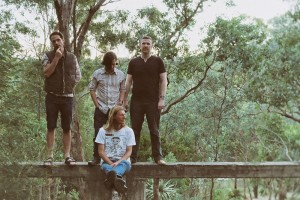 Summon the Birds’ latest album Blood Love is an inspired interweaving of song and story. The 6-track epic pulls you in right from the opening strains of ‘Funeral for a King’ and only lets go long after brilliant closer ‘London Tap Water’ rings out its last note. The band’s ability to immerse the listener in vivid scenes that feel somehow intrinsically Australian, even if their subject matter drifts abroad, sees them as kindred spirits with Australia’s Augie March and The Drones. It’s a very special thing indeed.
Summon the Birds’ latest album Blood Love is an inspired interweaving of song and story. The 6-track epic pulls you in right from the opening strains of ‘Funeral for a King’ and only lets go long after brilliant closer ‘London Tap Water’ rings out its last note. The band’s ability to immerse the listener in vivid scenes that feel somehow intrinsically Australian, even if their subject matter drifts abroad, sees them as kindred spirits with Australia’s Augie March and The Drones. It’s a very special thing indeed.
To get a peek inside the Bird machine we asked Jonathan Shaw from the band to pull three questions out of the bag…
What’s the best show you’ve ever been to?
In 2011, Milky and I went to the now-defunct Harvest Festival in Werribee and saw a whole stash of incredible acts, including Mogwai, The Flaming Lips and Kevin Devine. For me, the highlight was Portishead. Oh man. My heart. To hear Beth sing ‘Roads’ live transported me beyond the stars… so beautiful.
Which song of yours is most important to you and why?
I’ll nominate ‘Journey to the Centre of the Earth’ from our new album because of its unrelenting ambition. I also feel that if you like that song, you’ll like Summon the Birds. Just to complete that track, all 9 minutes of it, and to actually evoke – sonically and lyrically – the falling of a man into the Centre of the Earth is – in my opinion – a huge artistic achievement for the band. It also completes the ultimate synthesis of STB – the music as narrative and the lyrics as sound.
What’s one of your favourite albums that’s unlikely to be featured on anyone else’s list of favourite albums, and why do you love it?
A big album for us in the making of Blood Love – and one that Milky and I bonded over particularly – is Talk Talk’s Laughing Stock, released in 1991. It is phenomenally good and as soon as I heard it, all I wanted to do was make music that good. The pace of it is what captured my heart. It unfolds at its own steady pace and weaves the listener into an unrelenting tapestry of beauty, wisdom, sorrow and light. I think it’s a colossal suite of songs and I can’t believe I only heard about it 8 or so years ago. We also based the final number of tracks on our record – 6 – on the number of tracks on Laughing Stock.
Three Questions With Target Archery
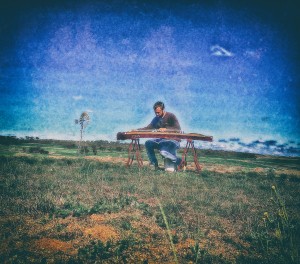 Target Archery’s stunning 2017 debut, The Clock of the Long Now, unwinds over 40 blissful minutes, weaving a suite of glimmering musical tapestries that expand beyond the borders of conventional guitar pop. Headed by Ambrose Nock (Apricot Rail) and featuring contributions from Apricot Rail members Justin Manzano (production and instrumentation) and Jack Quirk (guitars), Clock of the Long Now explores the fertile realm of delicate, experimental post-pop, influenced by the likes of Sound Dust-era Stereolab, left-of-centre indie-pop bands such as Lacto-Ovo, The Go! Team and Ninetynine, and a dash of late ’80s Sonic Youth.
Target Archery’s stunning 2017 debut, The Clock of the Long Now, unwinds over 40 blissful minutes, weaving a suite of glimmering musical tapestries that expand beyond the borders of conventional guitar pop. Headed by Ambrose Nock (Apricot Rail) and featuring contributions from Apricot Rail members Justin Manzano (production and instrumentation) and Jack Quirk (guitars), Clock of the Long Now explores the fertile realm of delicate, experimental post-pop, influenced by the likes of Sound Dust-era Stereolab, left-of-centre indie-pop bands such as Lacto-Ovo, The Go! Team and Ninetynine, and a dash of late ’80s Sonic Youth.
Why are we telling you all this? Because we cornered Ambrose and asked him to pull three questions out of the bag!
What’s the best show you’ve ever been to?
While it’s hard to go past Sonic Youth playing Daydream Nation in full, it’d have to be Gersey at the Rosemount many years ago – they were an incredible live band, especially in a small venue.
Build your own dream supergroup.
Keys & Sounds – Stina
Bass Guitar – Simon Struthers
Drum Kit – Ben Gibbard (lead singer from Death Cab but he played drums on their second record & they are stunning)
Woodwind – Mayuka Juber
Guitars – Myself!
Singing – Waltz era Glenn Richards (Augie March)
What’s one of your favourite albums that’s unlikely to be featured on anyone else’s list of favourite albums, and why do you love it?
I’m going to go with They forgot it in people by Broken Social Scene. Theres so many layers and little parts of it where they’ve just pushed things to their limit – things that you don’t notice at first but the character of the record has a lot of thought behind it. Without setting out to be, it’s almost a summation of all the techniques and things that were good about mid 90’s experimental guitar music, but with a lot of energy and delicacy thrown in.
Three Questions With Liminal Drifter
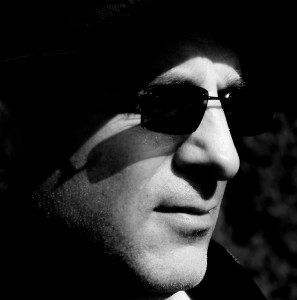 Dr. Simon Order, aka Liminal Drifter, wears many hats – academic, marathon runner and of course musician. Whilst it’s the latter we’re most interested in Order’s other two areas of activity inform his music in many key ways. The often wistful, open spaces of his work as Liminal Drifter feel like the perfect accompaniment to a runners high – internalised, slightly out of body and always moving forward. His debut album Troubled Mystic, featuring a number of collaborations with Chloe March, presents dreamy, evocative slices of ambient electronica sitting alongside some brooding downtempo gems. Check out the title track here ahead of the album release on the 19th of August 2015.
Dr. Simon Order, aka Liminal Drifter, wears many hats – academic, marathon runner and of course musician. Whilst it’s the latter we’re most interested in Order’s other two areas of activity inform his music in many key ways. The often wistful, open spaces of his work as Liminal Drifter feel like the perfect accompaniment to a runners high – internalised, slightly out of body and always moving forward. His debut album Troubled Mystic, featuring a number of collaborations with Chloe March, presents dreamy, evocative slices of ambient electronica sitting alongside some brooding downtempo gems. Check out the title track here ahead of the album release on the 19th of August 2015.
But that’s enough from us for now. Let’s hand it over to the good doctor as he pulls three questions out of the bag.
What kind of activity is your music made for?
Running, cycling, body action, movement in time, just breathing, washed in sonic waves, a back and forth, an up and down, a vibration, a passage of time. Time allows music. No time, no music, no movement. Resonance is all we have. I’m drawn to the resonance.
Why make music?
The human psyche; an almost unbearable number of excitable notions trying to break into the world, visceral and cerebral, stuff to be expressed and articulated. I think that’s where music comes in, tapping into that flow, reimagining, a crafting of emotions into sonic resonances that hopefully mean something to a listener. I’m drawn to that reimagining.
What’s your most treasured item of musical gear?
My bass guitar stands proudly in the corner reminding me there’s always a groove; the low, guttural, trouser-flapping power of music.
Three Questions With Giuseppe Musmeci (aka Willem Gator)
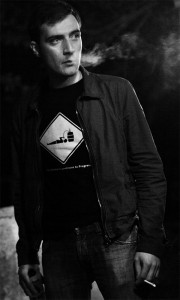 Giuseppe Musmeci is a man of many talents. He’s a self-taught composer, guitarist, electronic musician and member of the Italian post-rock outfit HC-B. His work under the Willem Gator moniker is a beautiful tapestry of atmospheric down-tempo, big basslines and oriental instrumentation, often counterpointed by urgent and angular beat-driven explorations. He creates music that is not only about ‘place’, but also deeply embedded in its own place of construction and composition. His pivotal 2011 album Hong Kong Express is testament to this approach, composed while the artist lived in a ‘cubby hole’ apartment in Kowloon.
Giuseppe Musmeci is a man of many talents. He’s a self-taught composer, guitarist, electronic musician and member of the Italian post-rock outfit HC-B. His work under the Willem Gator moniker is a beautiful tapestry of atmospheric down-tempo, big basslines and oriental instrumentation, often counterpointed by urgent and angular beat-driven explorations. He creates music that is not only about ‘place’, but also deeply embedded in its own place of construction and composition. His pivotal 2011 album Hong Kong Express is testament to this approach, composed while the artist lived in a ‘cubby hole’ apartment in Kowloon.
So let’s hand it over to Giuseppe as we ask him to pull three questions out of the bag…
Who is your dream collaborator?
Definitely Peter Hook from Joy Division-New Order!
Describe your musical career in 6 words or less.
Traveling, observe, breathe, absorb and release …
If you were writing a soundtrack/score, what director would you most want to work with?
David Lynch
Three Questions With Drew Sullivan
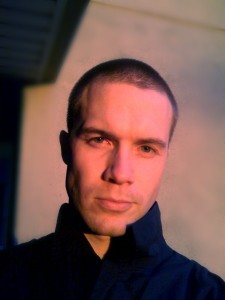
Slow Dancing Society has become an institution in the ambient scene, with each successive album holding true to a core sound while gracefully evolving. Drew Sullivan’s releases are neither by-the-book ambient nor exercises in structuralism, rather music that is birthed from emotion and feeling, then given form. Each song is a soundtrack to a moment; sonic photography painstakingly developed until its emotional hues are brought into focus. His latest EP, The Dusk Recital, is a delicious little side-step for the Slow Dancing Society project, as Sullivan employ more beats and overt ’90s dream-pop references.
So without further rambling, we ask Drew to reach into the bag and pull out three questions…
Describe your musical career in 6 words or less
Hidden Shoal believed in my sound
What’s your most treasured item of musical gear?
Omnisphere by Spectrasonics. It is “THE” synth to have. I really don’t know what I’d do without that synth. A close second is my Fender Stratocaster. Oh and my Fender Bass VI…ok I can’t really name just one, but those 3 are the total foundation of the Slow Dancing Society sound.
What’s the best show you’ve ever been to?
There’s been a lot of great ones that are still with me today, but I’d have to say Marilyn Manson on the Mechanical Animals tour. This was at the height of his showmanship and I truly loved that album over all of this others as it had that 80’s sound before really anyone else was doing it.
Three Questions With Christian Grothe
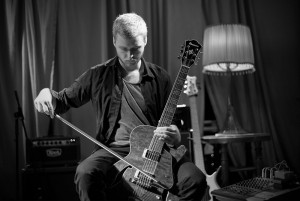 Under his Kryshe moniker, Germany’s Christian Grothe has produced some of the most beguiling and mesmerising experimental ambient music released in the last few years. His improvisational approach and incredibly delicate and atmospheric use of guitar, piano and digital manipulation is very much his own, married to an almost alchemical sense of composition. His most recent release, In Between, exemplifies this with its shimmering grandeur and wide, warm open spaces. One of the real highlights of Kryshe’s music is its undeniable emotional dimension – this is not music to help forget the world, but rather to soundtrack and mark your experiences within it.
Under his Kryshe moniker, Germany’s Christian Grothe has produced some of the most beguiling and mesmerising experimental ambient music released in the last few years. His improvisational approach and incredibly delicate and atmospheric use of guitar, piano and digital manipulation is very much his own, married to an almost alchemical sense of composition. His most recent release, In Between, exemplifies this with its shimmering grandeur and wide, warm open spaces. One of the real highlights of Kryshe’s music is its undeniable emotional dimension – this is not music to help forget the world, but rather to soundtrack and mark your experiences within it.
So without further ado, we ask Christian to reach into the bag and pull out three questions…
What kind of activity is your music made for?
When I listen to music, I like to get lost in the world of sound. I try to make music that I can get lost in, so maybe that’s the activity it was made for. But you can also use the music to create a nice atmosphere, just like you might light a candle.
What song of yours is most important to you and why?
The Growing EP is very important to me and I see it as one song because it came out of one live session. Although my sound is now a bit different, the creation of that EP was part of the process of developing my live set, and therefore a very important step in exploring the way in which I make music.
Why make music?
I make music because I’ve never done anything else! Because I’m a quiet person, when I make music I feel like I can express my stillness. Ideally, the music I make in the moment feels like an extension of myself. And maybe that’s why we’re here: to experience ourself. I think music is a very good way to do that.
Three Questions With DrAlienSmith
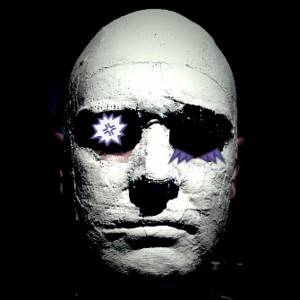 Al Smith (aka DrAlienSmith) plays an important role in the Perth music community. Over the last 15 years he’s worked with more than 300 bands at his Bergerk! Studios, including pivotal Perth outfits such as The Devil Rides Out, Drowning Horse, Abbe May, Eleventh He Reaches London, Claim The Throne and Extortion, as well as Hidden Shoal’s own Tangled Star and The Slow Beings. To add to this impressive list is Smith’s own work under the moniker DrAlienSmith. His debut EP, Under Songs, is testament not only to Smith’s mastery of the studio, but also his wonderful sense of texture, atmosphere and melody. Under Songs‘ monolithic compositions move at a glacial pace and feel like they are shifting the earth under your feet, but rather than alienating the listener, they put you in the driver’s seat and ask you to grip the wheel because it’s a long, long way to the ground. Powerful stuff!
Al Smith (aka DrAlienSmith) plays an important role in the Perth music community. Over the last 15 years he’s worked with more than 300 bands at his Bergerk! Studios, including pivotal Perth outfits such as The Devil Rides Out, Drowning Horse, Abbe May, Eleventh He Reaches London, Claim The Throne and Extortion, as well as Hidden Shoal’s own Tangled Star and The Slow Beings. To add to this impressive list is Smith’s own work under the moniker DrAlienSmith. His debut EP, Under Songs, is testament not only to Smith’s mastery of the studio, but also his wonderful sense of texture, atmosphere and melody. Under Songs‘ monolithic compositions move at a glacial pace and feel like they are shifting the earth under your feet, but rather than alienating the listener, they put you in the driver’s seat and ask you to grip the wheel because it’s a long, long way to the ground. Powerful stuff!
So without further metaphorical musings, we ask Al to reach into the bag and pull out three questions…
What’s one of your favourite albums that’s unlikely to be featured on anyone else’s list of favourite albums, and why do you love it?
That would have to be New Hope For The Dead by Sydney band Kiss My Poodles Donkey. I saw this album in a record store mid 90’s and bought it on the basis of the band name alone. One of those lucky flukes because at the time this album became like a bible to me. It was full of pretty amazing weirdo rock grooves with crazy production and killer lyrics. After a bit of research I found out that the main man behind this band was Chris Townend, a studio producer and engineer who ran Big Jesus Burger studios. He recorded all his own projects in between his other studio jobs and at the time I was a fresh faced studio geek looking to set up my own studio, so this guy was a legend. This album contains the best cover of a Prince song ever, and that’s saying a lot because I can’t stand Prince!
What’s the best show you’ve ever been to?
The first Perth Big Day Out in ’93. My first proper festival ticket with Iggy Pop at the top of his game, Bjork and band on fire, Sonic Youth (my heroes at the time), and then bands like Mudhoney and Nick Cave. All that with only 6000 people (not like the following BDOs, which topped 30,000). It was an amazing and inspiring day.
Build your own dream supergroup.
Tom Waits on vocals, Dave Lombardo on drums, Kim Gordon on bass, Marnie Stern and Tony Iommi on guitar 🙂
Three Questions With Chloe March
Chloë March is a songwriting force to be reckoned with. Not necessarily the most obvious way to introduce her gorgeous and delicate music, but more appropriate than it would seem on the surface. March’s ability as a composer and 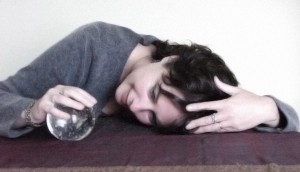 producer sees her create songworlds alive with feeling, shape and colour, and ringing with emotive energy. There is no better testament to this than on the forthcoming re-release of her album Nights Bright Days (4th November 2014), which inhabits musical territory somewhere between art song and folk, dream-pop and electronica, the ambient and the cinematic. March embraces all these influences to create an album full of poetic, emotionally charged and intensely atmospheric songs. It is a thing to behold.
producer sees her create songworlds alive with feeling, shape and colour, and ringing with emotive energy. There is no better testament to this than on the forthcoming re-release of her album Nights Bright Days (4th November 2014), which inhabits musical territory somewhere between art song and folk, dream-pop and electronica, the ambient and the cinematic. March embraces all these influences to create an album full of poetic, emotionally charged and intensely atmospheric songs. It is a thing to behold.
So without further adoration we ask Chloë to reach into the bag and pull out three questions.
Why make music?
It’s so all-encompassing, it engages my brain, my body and my heart all at the same time, which is probably why it feels so good when it’s going well and so awful when it isn’t. I really hope that my music can engage with all or some of those parts of the people who are into it – there’s nothing quite like knowing that you’ve managed to make that connection.
If you were writing a soundtrack/score, what director would you most want to work with?
My dream job would have been scoring Cary Fukunaga’s film of ‘Jane Eyre’ with Michael Fassbender and Mia Wasikowska. It’s one of my favourite books and such a brooding, spacious film with gorgeous bleakly epic melancholy landscapes, fantastic actors and so many undercurrents of passion to score. I also think it would be wonderful to work with the director Joe Wright. His use of music reminds me a bit of Anthony Minghella’s – there’s such a big impact made with the score in his films, it’s really given this wonderful amount of space which must be amazingly rewarding for a composer.
What’s the best show you’ve ever been to?
At the moment that would be seeing Goldfrapp for the first time earlier this year. They were playing in the grounds of Greenwich Naval College in London so the setting was fantastic, flanked by these venerable old buildings with the Thames and the lights of the city twinkling in the distance. It was freezing and raining but I was so excited to be finally hearing them live I went into a kind of trance. The musicians were brilliant and I’ve always been blown away by Alison Goldfrapp’s voice but I am now seriously in awe of her technique – she was very relaxed and free despite the cold, her range is phenomenal and her velvety tone is so gorgeous, she makes it all sound so easy. I love her performing style too, this sexy mix of confidence, shyness and wit. It was a beautiful show, really emotional and some great dancing at the end – I’m going again in November to hear the whole of ‘Tales of Us’ done live, so I suspect that might be the new best show!